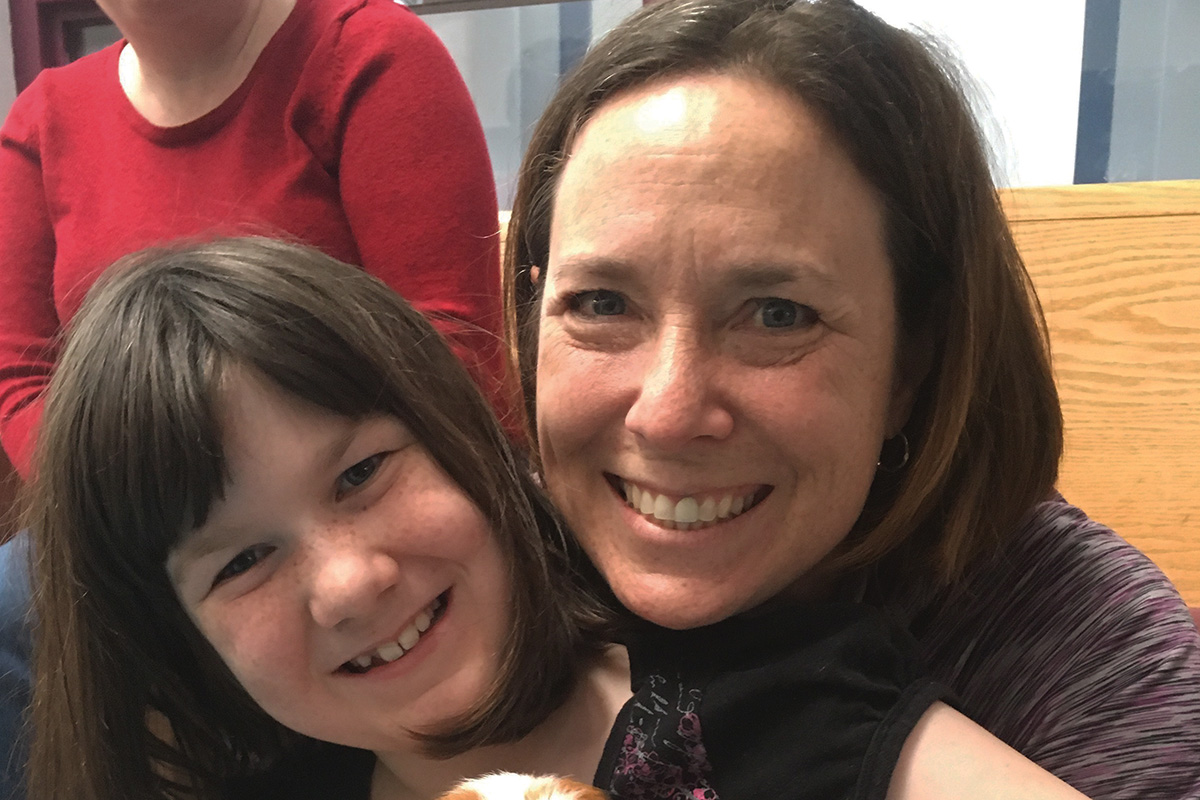When Suzanne Allen’s daughter Miriam was diagnosed with autism a year ago at the age of eight, Allen found few local resources. In October, she launched a weekly drop-in session at Orleans United in Ottawa for girls on the spectrum. She spoke with Kieran Delamont.
On raising a daughter on the autism spectrum: One of the things with girls is that they often go undiagnosed. They just adapt, and there’s an expectation from a young age that girls should be somewhat quiet and polite, and listen and follow. So girls often get missed because they’re doing all those things, even though they might be on the spectrum and showing that in different ways than boys.
On parenting: When your child looks completely normal — “neurotypical” is the word that’s used — and has a temper tantrum or a meltdown in a store or says something that isn’t appropriate for the situation, you often get looks that say, “Why don’t you discipline your child?” But it doesn’t have anything to do with that.
These experiences really taught me to reserve judgment about parents and what’s going on in their situation.
On inspiration: One day, a light bulb just came on. Miriam had been talking to me and said, “If I could, I would open an autism store. This store would have soft clothes and comfy pillows and soft blankets, and there’d be toys and games that kids with autism like.” Later, when I was hitting a wall with trying to get her into a program [to meet other girls with autism], I thought, “Maybe I could do something.”
On bringing autistic girls together: Miriam’s getting social interaction each week in a non-judgmental setting where she can practise skills. I understand that while she might not want a best friend right now, learning those skills — of give and take, sharing, being polite — are important. I don’t know what next year will be like or the year after that, but I’m hoping that some of the things I’m doing will help pave the way to make it a bit easier.
On support: Getting together with other parents and finding out, “Oh, your kid does that too,” it’s very reassuring. There’s a comfort in talking to other parents. You learn from those who have gone before you about what worked and what didn’t. It helps you to move forward.
With autism, it’s not like you get a diagnosis and then a list is handed to you — “Here are steps one through 50.” You get bits and pieces, and you get fortunate sometimes to bump into the right person.
This interview has been condensed and edited.
This story first appeared in The Observer’s May 2018 edition with the title “There’s a comfort in talking to other parents.”















